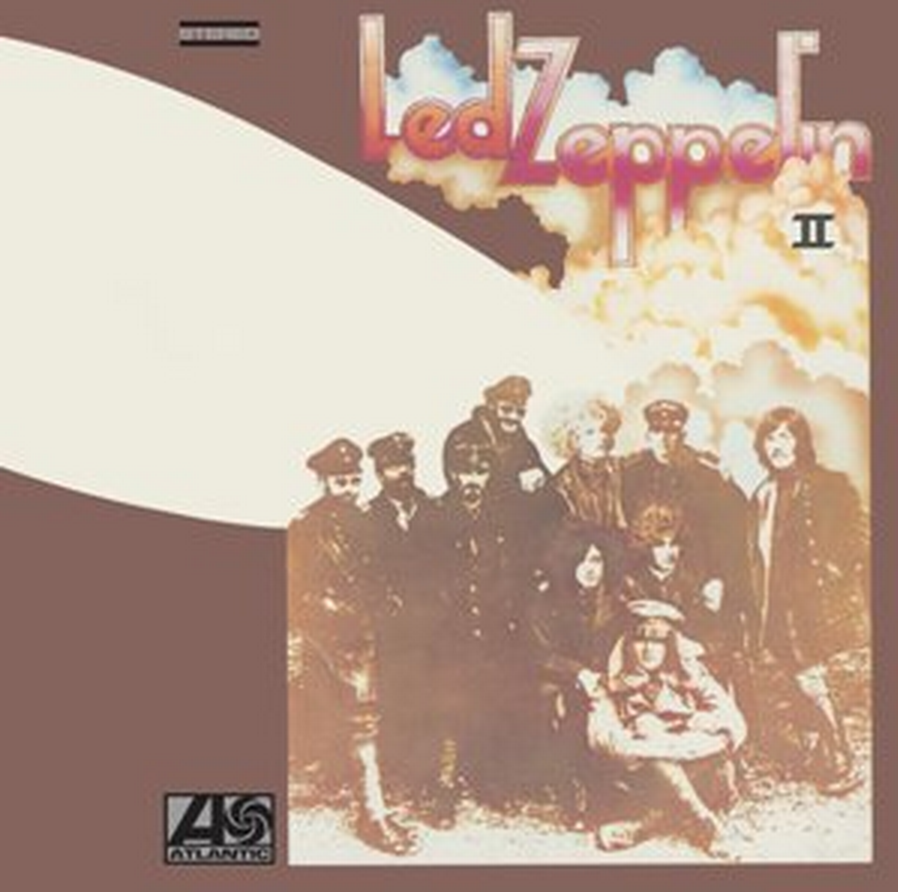Classic Albums Review: Led Zeppelin II
March 2, 2015
Charlie Arnedt, Staff Writer
If you disregard the lack of originality with Led Zeppelin’s first three albums, you effectively reveal an intriguing, head-pounding, intricate, and exquisite aspect of rock n’ roll. Led Zeppelin II, which was released on October 22, 1969 (only nine months after Led Zeppelin’s equally impactful debut album), presents a combination of precursor heavy metal, a fusion of blues and hard rock, and the individual and collective talent of the band members. I mean, it’s pretty easy to list off those fantastic characteristics of this LP, because a majority of Zeppelin’s material before the unfortunate death of legendary drummer John Bonham has been regarded as some of the greatest pieces of rock music. Nevertheless, there are flaws to be found and extrapolated upon, as well as gems to be described in detail so as to extend one’s musical tastes. Additionally, as a music lover I think it’s practically natural to expand your tastes. And so, without further adieu, you as the reader may determine if you should add Led Zeppelin to your list of musical likes or dislikes.
From the first few seconds of the album’s first track, “Whole Lotta Love,” you get a clear sense of what this album is going to be: no shortages of catchy guitar riffs, soaring lyrics, heavy bass notes, and substantial drums/percussion. With the few exceptions to these trademark
characteristics, it instantly becomes clear that if you’re in it for ‘softer’ music, Jimmy Page’s guitar and John Bonham’s drum kit are a surreal disappointment. However, there’s always going to be one track or two that takes a step away from the overall style of any given album. “Thank You” is one such track which, frankly, negatively takes away from the heavy, riff-laden aesthetic of the rest of Led Zep II. Granted, “Thank You” can be considered a sort of ‘preview’ to the band’s evolution into more acoustic tracks, and by no means is it a bad track, but if you listen to the album in its entirety, you might go away thinking, ‘what was that little acoustic bit with the organ in the background? That was quite a sidetrack.’ While I do not intend for you to have the same exact thought process as me, all I’m suggesting is that this detour from the rest of the album’s ‘feel’ can be vexing.
There is certainly merit in tracks which are longer than the traditional 2-3 minute long ‘classic’ songs – why do you think progressive rock bands get so much love and attention? But sometimes it’s just better to trim down certain songs. For instance, “Whole Lotta Love,” which I have previously praised for its setting the tone effectively the rest of the album, could have at least ninety seconds taken away (the song on the album is five minutes and thirty-four seconds long) without much being lost. Specifically, and this is where my main beef with “Whole Lotta Love” lies, after about a minute and a half of the song, there’s this unnecessary section which, while some may find it to be a nice little bit of work in the studio, I find to be just a portion of filler which would not be missed if taken away. Yet, there are cases in this album where the lengthier tracks are good as whole. The six-minute long track “The Lemon Song,” which, along with “Bring It On Home” showcases the blues influence on the band, ‘deserves’ its length for providing a consistent jam session with little to no holes without any sound.
Now here comes one of the greatest drum songs to ever damage the ears of rock lovers: “Moby Dick.” While Robert Plant’s voice is completely absent from “Moby,” as soon as Bonham’s drums are the only thing to be heard you really could care less that there is no other instrumentation. While Keith Moon may have said that drum solos are the most boring thing there is, I find it hard to call the gradual crescendo and hulking presence of “Moby Dick” anything but mesmerizing. Like so many of Jimmy Page’s iconic electric guitar riffs, John Bonham takes your ears away from the other and sends you on a 3-minute long voyage before dropping you back off with the other band members. I guess you really have to listen to this one instead of just reading about it, and whether you’re a drummer or a triangle-player, you have to at least appreciate the percussionary tenacity found in “Moby Dick.”
So, what do you think? Does a hard rock, blues rock, and pre-heavy metal mixture of easily recognizable tracks and phenomenal performances by all band members sound like your type of music? Well, if it isn’t that’s a shame, but we all have different tastes. But… if you are a rocker at heart and have yet to bring out the Led, listen to Led Zeppelin II. Believe me, it’s worth it.
